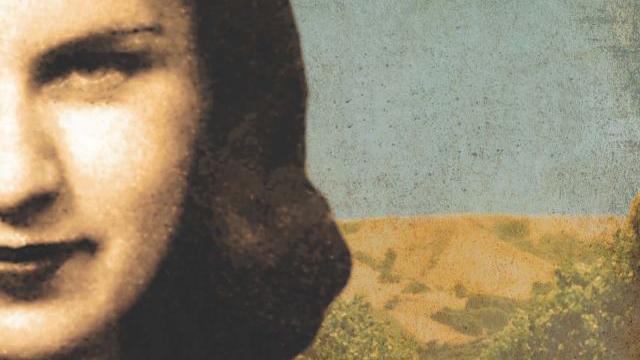A novelist finds ‘the Mexican girl’ from Jack Kerouac’s book On the Road
Image from the cover of “Mañana Means Heaven” by Tim Z. Hernandez
In Jack Kerouac's novel "On the Road," he describes an affair with a young woman he calls "the Mexican girl" — someone he meets at a bus station in central California.
"A pain stabbed my heart as it did every time I saw a girl I loved going the opposite direction in this too big world," wrote Kerouac in "On the Road."
Jack and the Mexican girl have a brief, 15-page, affair that takes them from the streets of Los Angeles to the fields of the San Joaquin Valley. The lovers exchanged a few letters after Kerouac returned east.
But aside from those few letters, kept at the New York City Public Library, nothing else was known about the mysterious Mexican girl — named Bea Franco in real life. That is, until poet Tim Z. Hernandez took it upon himself to find her.
"Holding those letters, I realized this was a real person and I wanted to know more about her," said Hernandez.
For two years, Hernandez tried to track down Bea Franco. He did endless online searching, called cemeteries, and visited the Kerouac archive multiple times. He even hired a private investigator, but Bea Franco remained as elusive as her character in the novel.
"The private investigator said to me before we parted ways, 'In all my years of experience, dead people are very easy to find. It's people who are alive that are difficult to find. Have you ever thought that she was alive?'" said Hernandez.
In fact, it hadn't ocurred to Hernandez that she might be living. Still, after an exhaustive two-year search, he gave up and began writing a novel from the facts that he had pieced together from his research. His mother, however, had become interested in his quest to find Bea Franco and decided to continue the search.
"Twenty-four hours later, she called me and said, 'I have an address for you,'" said Hernandez.
Bea Franco's address was just a mile and half from the house where Hernandez grew up.
Hernandez drove to Franco's house, knocked on the door, and spoke with Franco's very skeptical daughter, who had never heard of the writer Jack Kerouac. But when Hernandez handed her copies of their letters, she recognized the handwriting — it was unmistakable.
Soon after, Hernandez met Bea Franco, now in her nineties, and began to ask her about her life — a life that he has fictionalized in his novel, "Mañana Means Heaven."
[UPDATE: A previous version of the audio story incorrectly referred to Tim Z. Hernandez's book as "Mañana Means Forever." The correct title of the book is "Mañana Means Heaven."]
